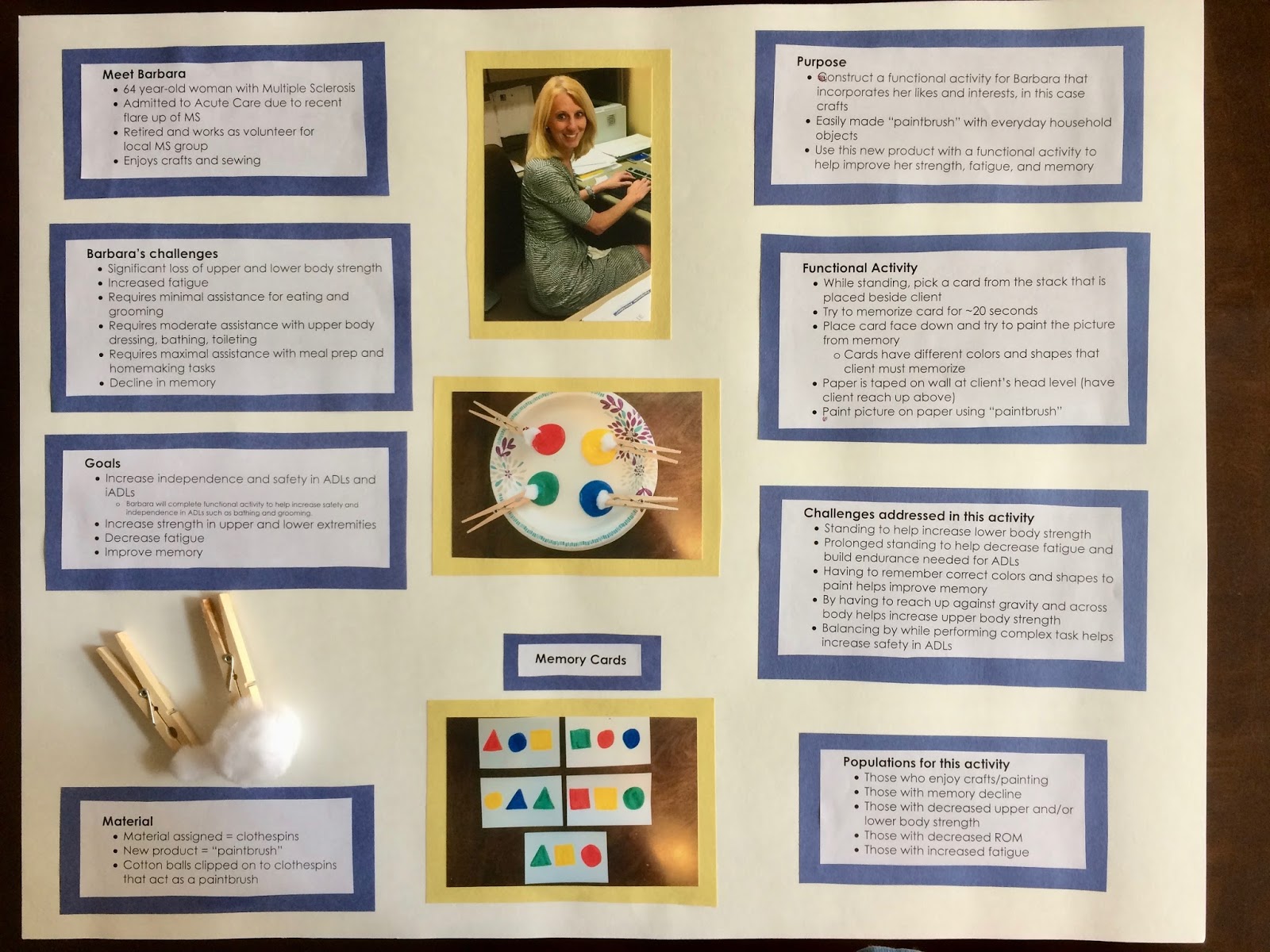Montel Williams is a popular busy man, who had several occupations such as TV show host, actor, father, and wrtier. He was diagnosed with MS at age 42. His initial symptoms were vision loss, fatigue, impaired coordination, and pain. He lost 80% of his vision in his left eye. Coping with the diagnosis was tough for Montel. He started to feel depressed and even tried to kill himself two times due to the pain. Before the diagnosis, Montel was a healthy and active man. His family was his motivation because he wanted to be able to be there for them 100% and not let this diagnosis control his life. He also wanted to continue his TV show, still act, and still write. MS presents many barriers for people, but it is not fatal like ALS is. Interventions for MS include increasing strength, ROM, endurance as well as decreasing pain and fatigue. Overall, this disease is manageable, but it presents many challenges that can interfere with one's activities of daily living.

